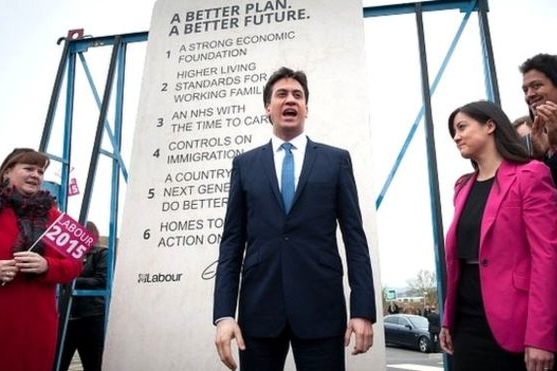The publication of expenses for last year’s election is a useful reminder of the reality of much of politics. It turns out it’s not all barnstorming speeches and televised debates. There are an awful lot of invoices involved too.
The claim everyone is obsessing about is that Labour spent just £16,000 on Facebook adverts, compared to more than a million spent by the Conservatives. Indeed, Labour seems to have spent less on Facebook adverts than each of the Liberal Democrats, Ukip, and Greens.
No one disputes the fact that the Conservatives outspent Labour on digital campaigning. For public consumption, Labour used to pretend that this didn’t matter – and that their grassroots activists would trump the Conservatives’ virtual campaign. But writing a book about the election, I found that privately Labour’s digital team were happy to admit that if they had the money they would have been doing exactly what the Conservatives were doing.
Still, the official Labour figure seems unfeasibly low, given that Labour were targeting Facebook ads on 63 constituencies. Either the initial release of data has overlooked some invoices – as with the infamous Ed Stone – or (as I suspect) some of the costs of Labour’s digital campaign are lurking in other invoices, less obviously labelled.
Anyway, all of this misses two much more important things about the data released yesterday. The first is that for all the attention given to it, spend on Facebook is still dwarfed by more old fashioned forms of campaigning. This is what I call (with characteristic modesty) Cowley’s Law of Election Campaigns: ‘There is an inverse relationship between the importance of any election campaign technique and the amount of media coverage devoted to it.’
Yes, Facebook is growing in importance, but when we discuss election campaigns, we should remember Deep Throat’s advice: Follow The Money. Out of just over £37 million disclosed yesterday, £15 million went on what the Electoral Commission call ‘unsolicited material to electors’ – leaflets, direct mail and so on. This is the biggest single category of expenditure, more than double the next largest (‘market research/canvasing’, some £7.6 million, much of which will have anyway been used to direct those very same mail shots). You will have to look hard to find any discussion of the humble leaflet yesterday.
Perhaps the most important thing about all of this expenditure – whether on Facebook or direct mail – is that it is classified as ‘national’. But it’s not. Much of it is focussed on a relatively small number of key constituencies, and yet is not classified under the – much tighter – local spending limits.
When discussing elections, there is a traditional distinction between the ground war (the local contest) and the air war (the national contest). This distinction remains useful, but in addition – to continue the military metaphor – there is an increasing amount of artillery, fired over the heads of the ground troops, directed from the centre and about which local party workers (or even staff) will be largely or completely ignorant. Much of this is not picked up in conventional analysis of campaign activity – or, crucially, in measures of local campaign expenditure.
Channel 4’s Michael Crick got excited yesterday when he discovered the Conservatives had booked a hotel in Ramsgate during the campaign, on which they had spent £14,000, easily enough to take them over the spending limits in Thanet South. But a more important question: how much had they spent on nationally directed Facebook ads or direct mail in the same seat? One party staffer estimated to me that the Conservatives were spending up to £100,000 in some constituencies in nationally directed campaigning, which puts a mere hotel bill into perspective.
None of the parties is necessarily doing anything illegal here – and they all do it (which is one reason I suspect Ukip may not go too heavily on the issue of spending in Thanet) – but that’s not a reason simply to ignore it.
Philip Cowley is Professor of Politics at Queen Mary University of London and (with Dennis Kavanagh) the author of The British General Election of 2015 (Palgrave)






Comments